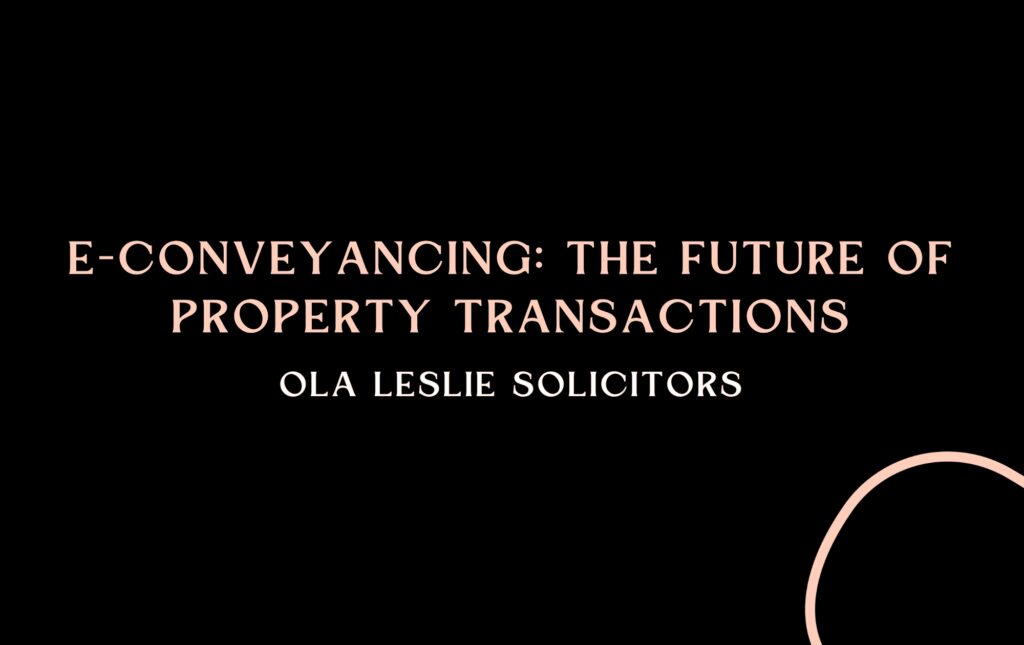E-conveyancing: The Future of Property Transactions
- Ola Leslie Solicitors

E-conveyancing is the electronic transfer of information and documents throughout the conveyancing process. E-conveyancing, also known as digital conveyancing or online conveyancing, is revolutionising the property market in the UK. It does this by replacing the traditional paper-based process with a secure online system. E-conveyancing significantly impacts the property transaction process by eliminating the need for extensive physical paperwork. This streamlined approach offers a faster and more efficient experience for all parties involved, including homebuyers, sellers, and legal professionals.
The Rise of E-conveyancing in the UK
Traditionally, UK property conveyancing has been a slow and paper-intensive process. However, the government actively promotes e-conveyancing adoption through initiatives like the HM Land Registry’s Digital Strategy. This strategy aims to create a fully digital conveyancing system, fostering greater transparency and efficiency within the property market.
Click to Get Commercial Property Quote
Benefits of E-conveyancing
Compared to traditional methods, e-conveyancing offers a multitude of advantages, including:
- Increased Efficiency: Online platforms streamline communication and document exchange, significantly reducing processing times. (Faster property transactions)
- Enhanced Transparency: Secure online portals provide real-time access to transaction updates for all parties involved, fostering greater trust.
- Reduced Costs: Streamlined processes and paperless transactions can lead to cost savings for both buyers and sellers.
- Improved Security: Digital platforms offer robust security measures to protect sensitive data throughout the conveyancing process.
- Accessibility and Convenience: E-conveyancing offers greater flexibility and convenience, allowing participants to access documents and track progress remotely. (Remote conveyancing)
What are the Disadvantages of E-conveyancing ?
While e-conveyancing presents a compelling future for property transactions, it is important to acknowledge some potential drawbacks:
- Technical Skills: Navigating the online platform may require a basic level of technical knowledge for some individuals. However, legal firms experienced in e-conveyancing can provide guidance and support.
- Digital Divide: A small minority of the population may lack access to reliable internet connections or digital devices. Alternative solutions may be necessary to ensure inclusivity.
- Integration with Existing Systems: Full adoption of e-conveyancing may require further integration with existing legacy systems within the legal and property sectors.
The Future is E-conveyancing
Despite the potential drawbacks, the advantages of e-conveyancing are undeniable. As technology continues to evolve and the legal framework adapts, e-conveyancing is poised to become the standard practice within the UK property market. Conveyancing firms that embrace this innovative approach will be well-positioned to deliver a faster, more cost-effective, and secure conveyancing experience for their clients.
Please Contact Us
Want to save time and money on your next property move? Contact Ola Leslie Solicitor today for a free e-conveyancing consultation.
Email Us





